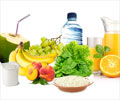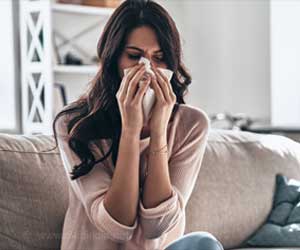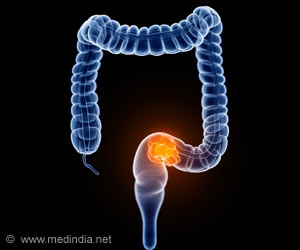As there is no vaccine against typhoid for infants below age two, dubbed Vi-TT was tested and found to be effective.
Highlights
- A trial vaccine for typhoid was found to be safe for use in infants.
- The vaccine dubbed was developed for infants less than 2 years of age.
- It was found that the vaccine may prevent more than half of all typhoid infections.
The vaccine was tested on adult volunteers in Britain, who were given a dose of bacteria. Those who fell ill were treated with antibiotics.
Symptoms were "less severe" in people given the trial vaccine, who also had lower bacterial numbers in their blood, the team found. Those not given Vi-TT received other existing vaccines to enable researchers to compare the results.
Typhoid or Enteric Fever
An estimated 5,700 cases of typhoid occur each year in the United States. Up to 75% are acquired while traveling internationally. Typhoid fever is still common in the developing world, where it affects about 21.5 million people each year.
Enteric fever is caused by bacteria called Salmonella typhi, or Salmonella paratyphi A or Salmonella paratyphi B.
Salmonella typhi, Salmonella paratyphi A, and Salmonella paratyphi B invades tissue and cause septicemia with high temperature known as enteric fever.
Persons with typhoid fever usually have a sustained fever as high
as 103° to 104° F (39° to 40° C). They may also feel weak, or have
stomach pains, headache, or loss of appetite. In some cases, patients have a
rash of flat, rose-colored spots.
Watching what you eat and drink when you travel is as important as being vaccinated. This is because the vaccines are not completely effective. Two typhoid vaccines are currently recommended for use by:
- an injectable polysaccharide vaccine based on the purified Vi antigen (known as Vi-PS vaccine) for persons aged two years and above
- a live attenuated oral Ty21a vaccine in capsule formulation for those over five years of age.
Tips to Prevent Typhoid
- Drink boiled water. Bring it to a rolling boil for 1 minute before you drink it. Bottled carbonated water is safer than uncarbonated water.
- Ask for drinks without ice unless the ice is made from bottled or boiled water. Avoid popsicles and flavored ices that may have been made with contaminated water.
- Eat foods that have been thoroughly cooked and that are still hot and steaming.
- Avoid raw vegetables and fruits that cannot be peeled. Vegetables like lettuce are easily contaminated and are very hard to wash well.
- When you eat raw fruit or vegetables that can be peeled, peel them yourself. (Wash your hands with soap first.) Do not eat the peelings.
- Avoid foods and beverages from street vendors. It is difficult for food to be kept clean on the street, and many travelers get sick from food bought from street vendors.
Source-Medindia













